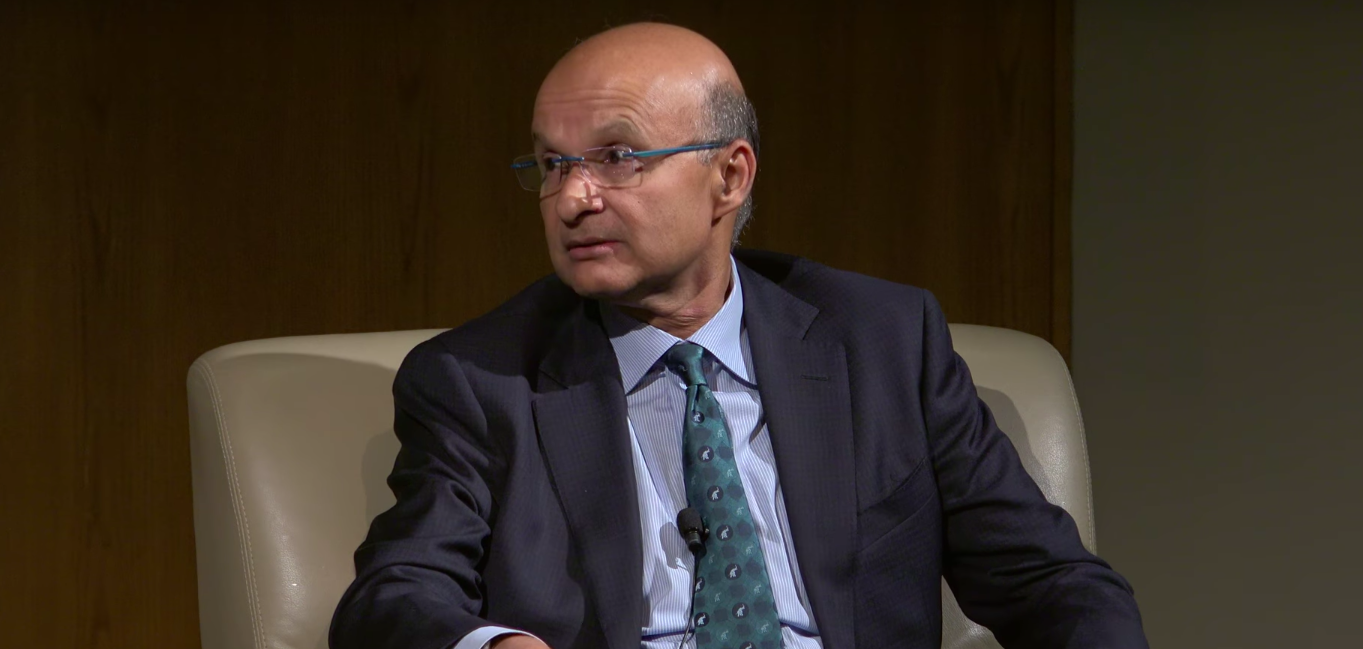In the midst of a pandemic, hospitals must scramble to make do with shortages of all kinds: masks, gowns, gloves, and, crucially, ventilators. Here, Medtronic CEO Omar Ishrak hopes to fill some of the gaps.
The Society of Critical Care Medicine has projected a possible need of close to one million ventilators in the US alone in the all-too-near future. They currently estimate about 200,000 stockpiled. About half of those may not be up to standards, and many must still go to patients with non-coronavirus ailments.
When there is a demand, a supply has to arise, especially in a time of crisis. Ishrak is one of the people working towards providing and immediate solution to an immediate problem. “Medtronic is mobilizing,” he tweeted out. “[We are] increasing production steadily and on track to double our current weekly volume.”
Omar Ishrak Doubles Down on Production
Medtronic is the world’s largest producer of medical technology. Right now, they hope to double – or more than double – their weekly ventilator production. The goal is 500 ventilators a week, and a spokesman from the company says that they “are examining anything we can possibly do to make that number go even higher.”
One of these steps is a recent partnership with Elon Musk and Tesla. Musk met with Ishrak on March 21st, and tweeted his positive response.
Just had a long engineering discussion with Medtronic about state-of-the-art ventilators. Very impressive team!
— Elon Musk (@elonmusk) March 21, 2020
Tesla will begin aiding Medtronic in the manufacturing process. Ishrak hopes that more partnerships will follow, bolstering production to meet the new demand. “We’re also opening up with other partners who have come forward,” he told CNBC.
Omar Ishrak on the Brink of Retirement
Ishrak likely did not expect to spend his Spring spearheading a monumental effort in the midst of a global pandemic. In fact, before COVID-19 began spreading in earnest, Ishrak was actually planning on retirement this coming April after a successful nine-year tenure.
As CEO, he helped the company traverse “troubled waters” and handled the purchase of Covidien, another medical supply producer, which was the largest medical technology merger in the history of the industry.
Ishrak’s tenure has been defined by a combination of a personable demeanor and a series of calculated risks which have brought up the stock value of the company from $38 in mid-2011 to about $118 as of this January.
Personally, Ishrak’s dedication has been a cornerstone of his life. Even as a college student, the young scientist took a hitchhiking trip across the United States. The purpose, rather than enjoyment, was to drop by every university that had an ultrasound unit. He used these opportunities to meet personally with every professor that could help him work on his thesis.
Ventilators Key to Survival for Critically Ill Patients
Whether or not Ishrak retires this Spring, he has not slowed down in the meantime. Based on projections and data from other countries, many expect that ventilators represent the single most troubling shortage in the nation.
“Ventilators are to this war what missiles were to World War II,” says Gov. Andrew Cuomo of New York. In short supply, many companies have shifted their production to assist the manufacturing of ventilators and other medical equipment. Tesla announced that it will reopen its factory in New York as a response to this statement, promising, “we will do anything in our power to help the citizens of New York.” Other companies are also stepping up to the plate, such as Bloom Energy and Apple, which are providing financial support to hospitals, facilitating access to older yet still functional equipment, and refurbishment services.
Ishrak tweeted out that he is “thankful to Medtronic employees working 24×7 to manufacture & supply high performance ventilators.”
Updates on the coronavirus pandemic are available from the World Health Organization and the Center for Disease Control.



